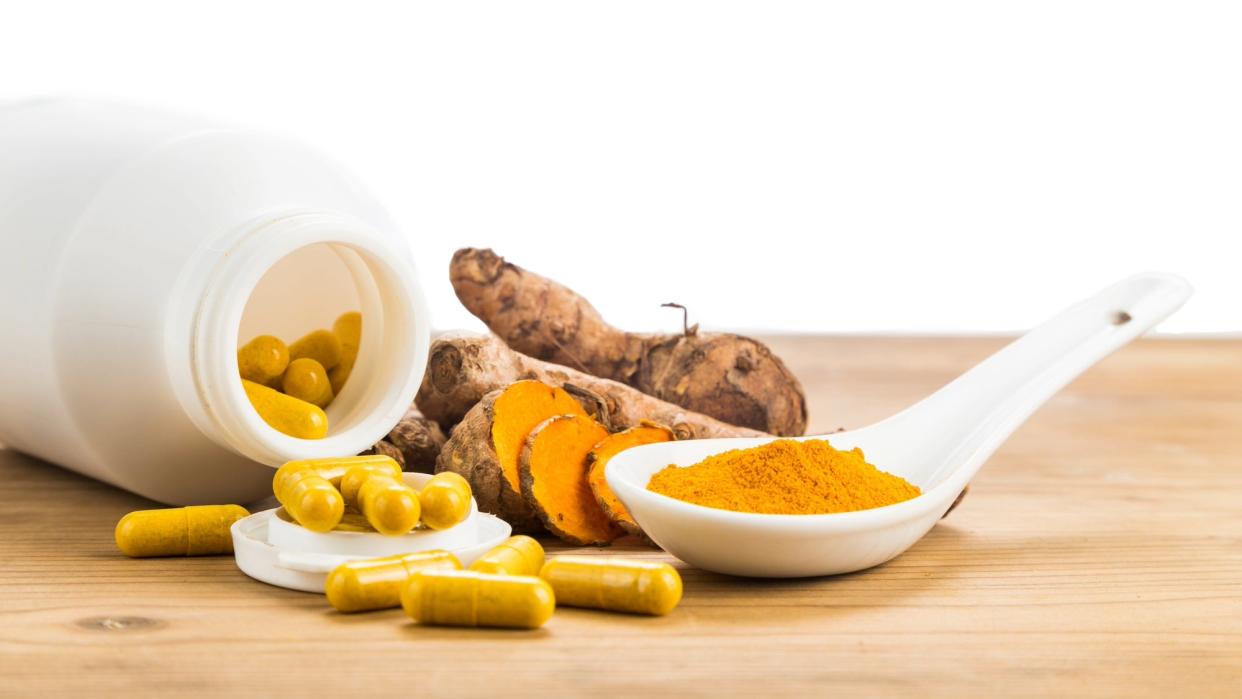Turmeric may help stomach aches, study shows

Turmeric seems to be everywhere these days—on spice shelves, sprinkled on lattes, in beauty products. While the beloved golden spice has long been touted for health benefits, albeit not always backed up by extensive research, a new study in BMJ Evidence-Based Medicine found that turmeric shows signs of being just as or more effective for indigestion than some conventional over-the-counter drug options.
The study, led by Krit Pongpruil, an associate professor of preventative and social medicine at Thailand’s Chulalongkorn University, randomly assigned 206 patients between the ages of 18 and 70 with recurrent upset stomachs into three treatment groups. One group got two large capsules of curcumin, a naturally active component to turmeric and a dummy capsule, another got a small omeprazole capsule and two summy capsules four times a day, and the last group got omeprazole and turmeric capsules.
Omeprazole is a common treatment for stomach problems such as acid reflux and ulcers. It works as a proton pump inhibitor, which reduces the amount of acid made by stomach glands, but can also cause health concerns after long term use, like micronutrient deficiencies and fracture risks, according to the study authors.
[Related: For decades, turmeric’s ultra-golden glow had a deadly secret.]
Assessments were taken after days 28 and 56, and the researchers found that the results between the three groups were similar, which points to the efficacy of turmeric, according to the authors. “The strength of the study lies in its relevance to daily clinical practice, providing additional drug options in addition to PPIs alone, without added side effects,” they wrote in their findings.
Of course, this study should be taken with a grain of salt, especially since the group of patients was so small. “I don’t think this one study alone is enough for me to say, ‘I recommend this,’” Yuying Luo, a gastroenterologist and assistant professor of gastroenterology at the Icahn School of Medicine at Mount Sinai, told CNN. “Proceed with caution.” It’s crucial to also check with your doctor to make sure that turmeric doesn’t interact poorly with any other medicines before taking it—some case studies have linked curcumin and liver injury, Luo told CNN.
Further studies are needed to see if a taste of turmeric could replace or supplement medicines to help with gastrointestinal issues and more (and if you need to take it in pill form for the effects to kick in). Until then, enjoy your favorite heartily-spiced, turmeric-filled foods, but don’t expect them to make your stomach problems vanish.

